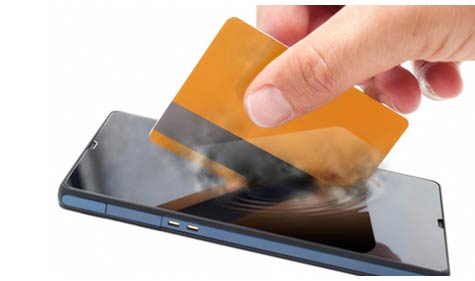Yesterday, one of the apps that was preloaded when I purchased my Samsung Galaxy S4 automatically updated itself. The app, ISIS Mobile Wallet, changed its name to Softcard. I’d never used ISIS, nor intended to use it, but hadn’t gotten around to uninstalling it from my smartphone.
When companies compile lists, or even fret from time to time about looming risks to their business’ health, finding that a suddenly notorious terrorist organization noted for a taste for extreme violence and cruelty shares your name is not normally one of the items. But it can happen, as this and other companies have found in recent months.
Though we may think we know the “obvious” reason for the company’s name change, one or more other realities may have prompted the drastic and costly move. The founder of a naming agency, Steve Manning, told Marketplace.org that the terrorist situation in the Middle East gave the ISIS app a “perfect excuse” to rebrand. The mobile wallet actually wasn’t doing well, said the Igor founder, and that’s why making the change made sense as a second chance at success.
JC Torres wrote on Slashgear, though, that ISIS Mobile Wallet was primed to be doing pretty well, indeed, and the rebranding opportunity may have seemed attractive because of the close proximity of the release of Apple’s iPhone 6 and the expectation that it would include NFC capability, making an Apple-ISIS agreement a possibility. As it turns out, the iPhone 6’s NFC is a reality, though only for use with the Apple Pay system, for now.
In the mobile payments space, while this name change from ISIS Mobile Wallet to Softcard is receiving a lot of attention, even going ahead with the switch may not be enough to save this app – or the rest of them. Even Apple may not be able to make it work. For both providers and users, the risks associated with mobile payments may be too high. AssociationsNow, for example, asks, “Is Now the Time for Mobile Payments?” For many reasons, users like me are well aware of options like Softcard and Apple Pay, but have absolutely no intention of using them. And a thriving market that does not make.
Based on discussions at the 2014 Merchant-Financial Services Cybersecurity Summit, the article rounds up quite clearly the challenges that entrants into the business will be facing for a long while: Major retailers well-known to customers (including Apple) are suffering data breaches on a daily basis; carrier collaborations are falling apart; regulatory control over financial services and telecom is burdensome; payment inertia is entrenched. Basically, even if users aren’t turned off by security and privacy worries, they don’t see the benefit of switching from using credit cards to using their phones to make payments. To most, the current system doesn’t seem like a problem that needs solving.
Kachina Shaw is managing editor for IT Business Edge and has been writing and editing about IT and the business for 15 years. She writes about IT careers, management, technology trends and managing risk. Follow Kachina on Twitter @Kachina and on Google+




